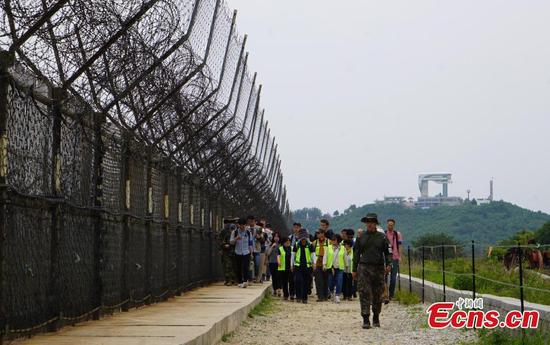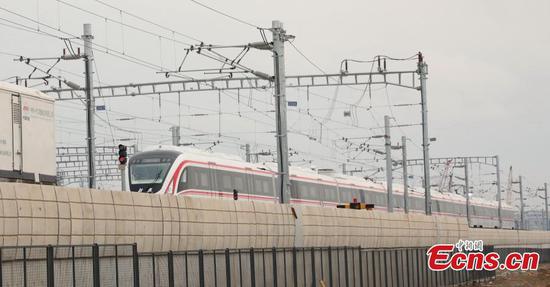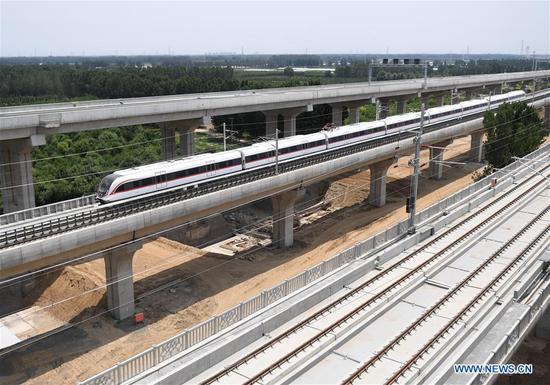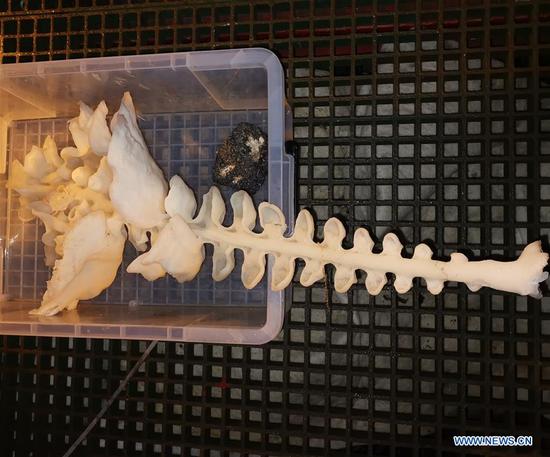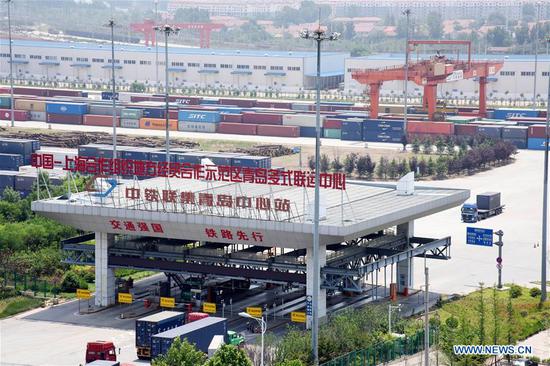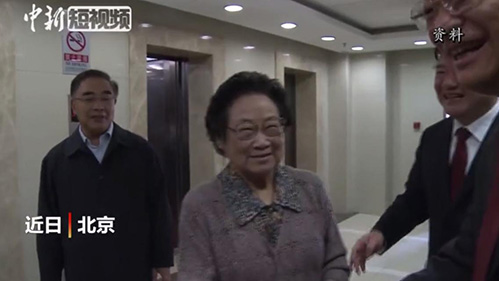China will roll out a host of measures to expedite two-way financial opening-up, with Shanghai as the key pilot, top financial regulators said on Thursday.
Analysts said the measures are set to strengthen the financial markets' ability to bolster economic growth, while the induced risks shall be controllable.
The central bank will strongly support Shanghai's aspiration to become an international financial center, Yi Gang, governor of the People's Bank of China, said at the Lujiazui Forum in Shanghai on Thursday.
"The core of developing Shanghai into an international financial center is to make the city the global center for the allocation and risk management of renminbi-denominated financial assets," said Yi, adding that this requires Shanghai to strengthen its clout in asset pricing and develop more derivative instruments.
Specifically, the foreign ownership caps of securities firms and fund managers will be lifted in Shanghai, while business scopes of foreign financial institutions located in the city will also be expanded, Yi said.
Moreover, the central bank will reform bank account system management in Shanghai to facilitate cross-border transactions, refine interbank foreign exchange and bond markets, and provide more types of forex options.
Pan Gongsheng, head of the State Administration of Foreign Exchange, said at the same forum that the top foreign exchange regulator will elevate the convertibility of China's capital account mainly by pushing forward two-way financial market opening-up.
The SAFE will reform the Qualified Foreign Institutional Investor program and the RMB Qualified Foreign Institutional Investor program, which enable licensed international investors to participate in mainland stock exchanges, Pan said.
"We will enlarge the investment scopes of the programs, and study moderately easing or even canceling the quota management of the QFII program," said Pan.
More capital market opening-up measures were announced by Yi Huiman, chairman of the China Securities Regulatory Commission, the top securities regulator.
China will encourage more foreign participation in the country's foreign exchange bond market, and will facilitate the issuance of yuan-denominated "Panda Bonds" by overseas institutions in China, Yi said.
In addition, the CSRC plans to relax rules for foreign banks to provide fund custodian services in China and will give foreign investors wider access to its futures market, Yi said, adding that the country will firmly push ahead capital market opening-up no matter how the external environment changes.
Liu Chunsheng, an associate professor at the Central University of Finance and Economics in Beijing, said the package of financial opening-up measures came at a time when it is imperative to improve the efficiency of the capital market to support the real economy.
"Further financial opening-up may expose the country to higher cross-border capital flow risks, but market participants will sharpen their capacity in global competition, which will in turn revamp the market," Liu said.
Risks brought by opening-up measures should be under control, as the regulators adopt a progressive manner and have rich experience in risk prevention, Liu said.
"The ability of the forex market to mitigate risks has notably improved," Pan said. Recent external challenges have depressed the yuan somewhat, but the forex market is largely stable with rising forex reserves, according to Pan.
China is capable and confident of keeping its currency basically stable, Pan said, citing the great potential for overseas capital to flow into the country's capital market.



















